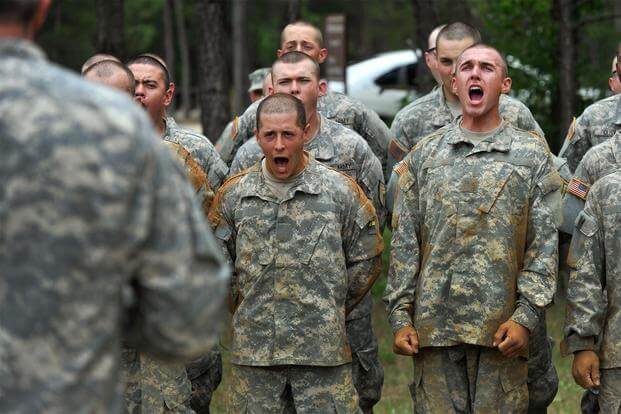More than 400 new recruits are on hold at Fort Benning, Georgia's reception station and may have to wait as long as three weeks to begin Basic Combat Training.
Fort Benning usually experiences an "increase of personnel to train during the summer, commonly known as the 'Summer Surge,' " Ben Garrett, a spokesman for Benning, said in a statement.
One reason for this year's surge is "the increase in Army end strength," he said. The Army is scheduled to grow from 483,500 to 487,500, according to the service's fiscal 2019 budget numbers.
"We anticipate the training to begin July 27, 2018, and Aug. 3, 2018," Garrett said of the 423 recruits awaiting training.
New soldiers typically spend seven to 14 days processing through the reception battalion but, during the summer, that time could be as long as 21 days, he added.
Despite the number of recruits waiting to starting BCT, reception battalion cadre are "well equipped and organized for their mission to prepare the personnel for their basic training class," according to Garrett.
"Personnel currently in the reception battalion are continuing to train, conducting physical fitness training, first aid classes, weapons familiarization classes, as well as professional development classes," he said. "An added benefit of this extra time is an opportunity to adapt to the summer heat at Fort Benning, which is a training factor. Personnel are able to get adequate rest and nutrition and conduct physical training to acclimatize to the training environment."
The delay does not affect the One Station Unit Training Extension Pilot class, which began July 13, 2018, Garrett said.
Army officials announced in late June that the pilot will extend infantry OSUT from 14 weeks to 22 weeks, giving soldiers more time to practice key infantry skills, such as land navigation, marksmanship, hand-to-hand combat, fire and maneuver, and first aid training.
Once the pilot is complete in December, the plan is to make final adjustments to the program of instruction and begin the 22-week cycle across infantry OSUT in October 2019.
-- Matthew Cox can be reached at matthew.cox@military.com.














